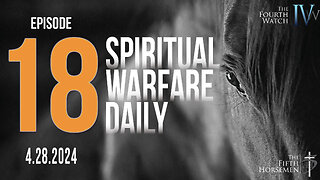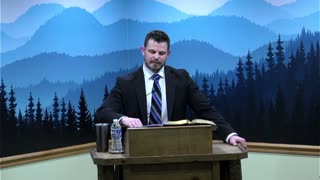Episode 2022: Drawing Closer to Holiness: Serving Others and Overcoming Discouragement
In this episode, we explore the intersection of service, prayer, and personal growth in holiness. Drawing inspiration from the timeless wisdom of St. Vincent de Paul, J. Augustine Wetta, O.S.B., and the words of Jeremiah, we delve into the challenges and rewards of living a life dedicated to serving others while navigating the inevitable struggles and discouragements along the way.
Quotes:
"Lord, help me to make time today to serve you in those who are most in need of encouragement or assistance." –St. Vincent de Paul
The call to serve others, particularly the less fortunate, as an expression of one's devotion to God.
St. Vincent de Paul was renowned for his compassion and commitment to serving the poor. He founded the Congregation of the Mission (Vincentians) and the Daughters of Charity, religious orders dedicated to providing spiritual and material assistance to those in need.
This quote reflects St. Vincent de Paul's understanding that serving others is not merely a charitable act but also a way of encountering and serving Christ Himself. In the Gospel of Matthew, Jesus teaches that whatever we do for the least of our brothers and sisters, we do for Him (Matthew 25:40). Therefore, when we serve those who are in need of encouragement or assistance, we are, in essence, serving Christ.
This should encourages us to prioritize acts of charity and service in their daily lives, recognizing the dignity of every human person as a child of God and embracing the opportunity to manifest Christ's love in practical ways. It underscores the importance of selflessness, compassion, and generosity as fundamental virtues in the Christian journey.
In essence, St. Vincent de Paul's prayer challenges Catholics to live out their faith authentically by actively seeking opportunities to serve others, particularly those who are marginalized or in need, and viewing these acts of service as acts of devotion to God. It reminds believers that true discipleship involves not only prayer and worship but also tangible expressions of love and mercy towards one's neighbors.
The next quote comes from J. Augustine Wetta, O.S.B and let me provide you some background on him.
J. Augustine Wetta, O.S.B. (Order of Saint Benedict), is an American Benedictine monk, teacher, and author known for his works on education, spirituality, and personal growth. Born on July 30, 1970, in Washington, D.C., he was raised in Bethesda, Maryland.
Wetta attended the University of Dallas, where he earned a Bachelor of Arts degree in English Literature. Inspired by his Catholic faith and a desire for deeper spiritual engagement, he entered the Benedictine monastery at Portsmouth Abbey in Rhode Island in 1992. There, he took the monastic name Brother Augustine, honoring the great Christian theologian and philosopher Saint Augustine of Hippo.
During his time in the monastery, Wetta pursued further studies, earning a Master of Divinity degree from Saint John's School of Theology in Collegeville, Minnesota. He also completed a Master of Arts degree in English Literature from Middlebury College in Vermont.
As a Benedictine monk, Wetta has dedicated himself to a life of prayer, work, and community living, following the Rule of Saint Benedict, which emphasizes a balance of prayer, study, and labor.
Wetta's passion for education led him to become a teacher. He has taught English and theology at Portsmouth Abbey School, the Benedictine boarding school associated with his monastery. His teaching style is characterized by a commitment to fostering critical thinking, intellectual curiosity, and spiritual growth in his students.
In addition to his teaching duties, Wetta is also an accomplished writer. He has authored several books, including "Humility Rules: Saint Benedict's Twelve-Step Guide to Genuine Self-Esteem," in which he explores the wisdom of Saint Benedict's Rule and its relevance to contemporary life. In this work, Wetta offers insights into how the principles of humility, balance, and community can lead to a deeper sense of purpose and fulfillment.
Wetta's writings reflect his deep understanding of both Benedictine spirituality and the challenges facing individuals in the modern world. He seeks to inspire others to cultivate a deeper spiritual life and a greater sense of meaning and purpose in their lives.
As a monk, teacher, and author, J. Augustine Wetta, O.S.B., continues to make a significant contribution to the Benedictine tradition and to the broader conversation on spirituality, education, and personal growth.
He said:
“At times, you may become discouraged when you pray because your sins seem to jump out at you. You may actually feel worse than ever. But don’t let that get you down. It’s actually a sign of progress because the closer you draw to the perfect holiness of God, the more your own imperfections will stand out against the pure light of His holiness…This explains why really holy people are often the last ones to admit it, because the holier they get, the less holy they feel.” J. Augustine Wetta, O.S.B
J. Augustine Wetta, O.S.B., offers insight into the spiritual journey and the experience of prayer, particularly in relation to the awareness of one's sins and imperfections. Let's break down the perspective it presents:
Discouragement in Prayer: The quote acknowledges that it's not uncommon for individuals to feel discouraged during prayer, especially when they become acutely aware of their own sins and failings. This discouragement can stem from a sense of unworthiness or frustration with the persistence of personal shortcomings despite sincere efforts to grow spiritually.
Sign of Progress: Contrary to what one might expect, feeling worse during prayer due to the awareness of sin is reframed as a positive sign of spiritual progress. This perspective suggests that as individuals draw closer to God and His perfect holiness, their own imperfections become more apparent in the light of His purity. In other words, increased sensitivity to one's sins may indicate a deepening awareness of God's standards of righteousness and a desire for greater conformity to His will.
Humility and Holiness: The quote highlights a paradoxical aspect of holiness: as individuals become holier, they may feel increasingly aware of their own unworthiness and imperfections. Truly holy people may be hesitant to acknowledge their holiness precisely because they recognize the vast gulf between their own limitations and the perfection of God. This humility is seen as a hallmark of authentic holiness, as it reflects a sincere recognition of one's dependence on God's grace and mercy.
From a traditional Catholic perspective, this quote underscores the importance of perseverance in prayer, even in moments of discouragement or spiritual dryness. It encourages believers to view struggles with sin and feelings of unworthiness as opportunities for growth rather than reasons for despair. Ultimately, it invites individuals to embrace humility and trust in God's transformative power as they strive for holiness in their spiritual journey.
Now lets end this episode with a scripture verses. Jeremiah 32:17-19
"‘Ah Lord God! It is thou who hast made the heavens and the earth by thy great power and by thy outstretched arm! Nothing is too hard for thee, who showest steadfast love to thousands, but dost requite the guilt of fathers to their children after them, O great and mighty God whose name is the Lord of hosts, great in counsel and mighty in deed; whose eyes are open to all the ways of men, rewarding every man according to his ways and according to the fruit of his doings."
this scripture verse can be understood in several key aspects:
Acknowledgment of God's Creation: The passage begins with an acknowledgment of God as the Creator of the heavens and the earth. This declaration highlights the belief in God as the supreme being who brought the entire universe into existence through His great power and outstretched arm. In traditional Catholic theology, the act of creation is seen as an expression of God's infinite wisdom, goodness, and love.
God's Omnipotence and Steadfast Love: The passage emphasizes God's omnipotence, asserting that nothing is too hard for Him. This speaks to the traditional Catholic understanding of God's limitless power and ability to accomplish His purposes. Additionally, the reference to God's steadfast love to thousands underscores His enduring faithfulness and compassion towards humanity, despite our shortcomings and sins. This concept aligns with Catholic teachings on God's mercy and the redeeming power of His love, as revealed through Jesus Christ.
Justice and Reward: The passage also speaks to the idea of divine justice and the consequences of human actions. It mentions how God requites the guilt of fathers to their children after them, highlighting the accountability individuals have for their deeds. In traditional Catholic theology, there is an emphasis on the moral responsibility of individuals and the notion of divine judgment, where God rewards or punishes according to one's actions. This aligns with Catholic teachings on the moral law and the importance of living virtuously in accordance with God's will.
Overall, Jeremiah 32:17-19 underscores key theological themes in traditional Catholic belief, including God's sovereignty, power, love, justice, and the moral responsibility of humanity. It invites believers to acknowledge God's greatness, trust in His providence, and live faithfully in accordance with His commandments.
Let us carry forward with the inspirations of these religious fathers and scripture, striving to live lives of service, prayer, and holiness. May we emulate the example of the writers, who dedicated their lives to serving the marginalized and embodying Christ's love in the world. And may we find comfort in the knowledge that God's grace is sufficient to sustain us through every challenge and trial on our journey towards becoming the person He calls us to be and then take that and go out and convert somebody. Good Easter Wednesday!
-
 26:48
26:48
CatholicReboot
1 month ago $0.02 earnedEpisode 2083: Judged by Charity: Navigating Life's Spiritual Terrain
136 -
 21:51
21:51
CatholicReboot
1 month agoEpisode 2072: Recognizing the Divine: Devotion, Presence, and Perseverance
170 -
 45:43
45:43
Samuel Adams Returns
1 month agoEpisode 438: Mercy, Lawfare and Discouragements – It’s On You To Do
48 -
 10:05
10:05
Jesus' Love Letters ... Liebesbriefe
1 month agoDeceptions, religious Spirits and Lack of Peace ❤️ Love Letter from Jesus Christ
191 -
 1:13:57
1:13:57
elderry
1 month agoExcuses for not winning souls Pastor Aaron Thompson SFBC Vancouver
1241 -
 3:55
3:55
Bible Study | VerseVisionaries.com
1 month agoHow Can We Find Life, Righteousness, and Honor? Proverbs 21:21
38 -
 1:31:26
1:31:26
TheFourthWatch
1 month agoSpiritual Warfare Daily - Episode 18: 4.28.2024 - Your motives matter
172 -
 21:03
21:03
Gods Plan Your Part
1 month agoJohn 13 | Washing Feet: Humility and Love at the Last Supper
18 -
 1:31:26
1:31:26
ArtBaptist1611
1 month agoConfidence Vs. Arrogance | Pastor Jason Robinson
48 -
 29:39
29:39
Campbellfamily07
1 month agoThe Bible Day 76: "Exploring Faith, Temptation, and Divine Intervention”
48